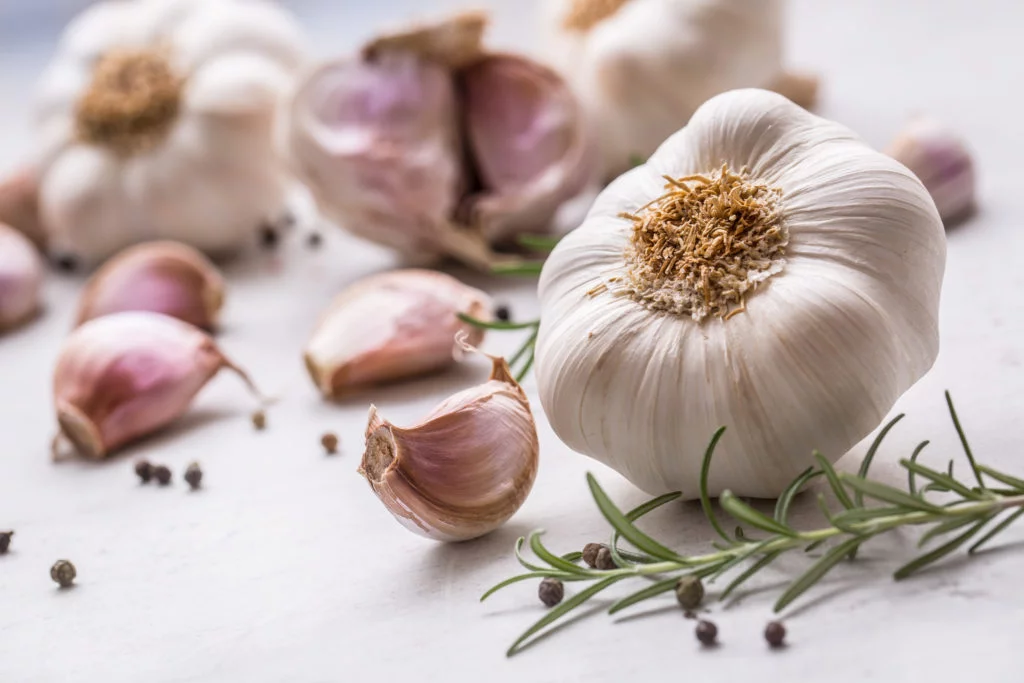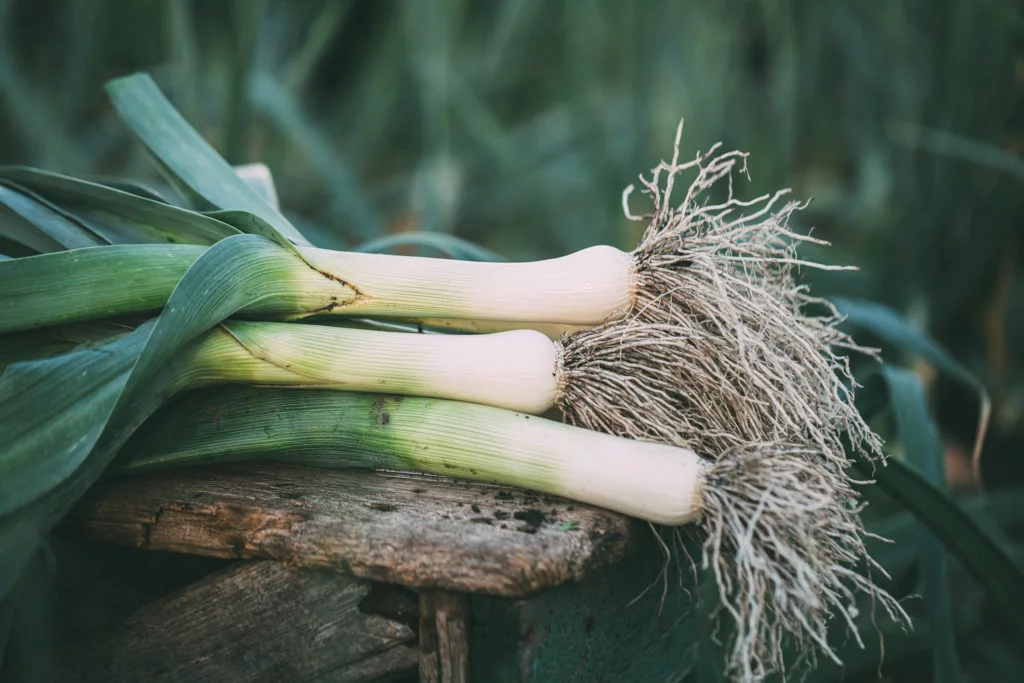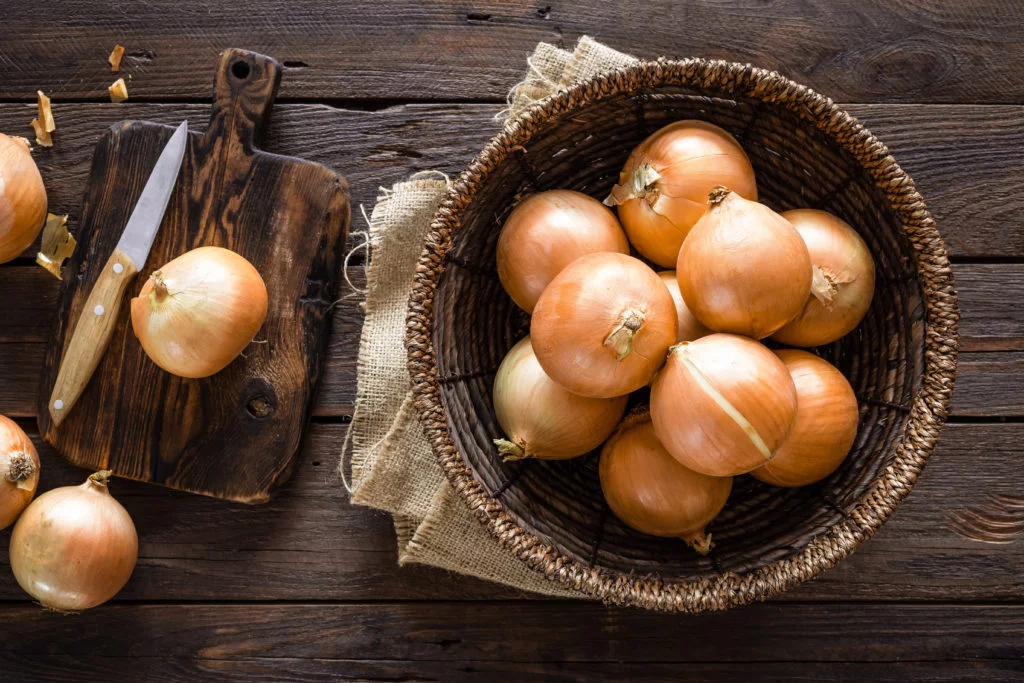What’s the difference between an allium intolerance and an allium allergy?
Typically, people with food intolerances* have less severe symptoms and reactions than those with an allergy. For example, someone with an allium intolerance may suffer from cramping or diarrhoea after eating garlic or leeks, while for someone with a diagnosed onion allergy, symptoms could include difficulty breathing and even anaphylaxis.
If you’ve noticed stomach problems or itchiness after eating allium-rich foods – which can include sauces and seasonings – you may be suffering from an intolerance*.
You should always visit your GP as a first step if you suspect you are suffering from a particular reaction to food – particularly if you think you may have an allergy. Once your doctor has ruled out any major underlying health conditions, you can then continue with at-home health tests and elimination diets to get to the bottom of any intolerances you may have.







